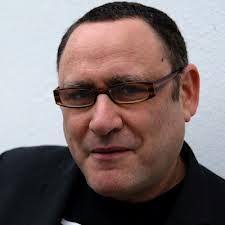A film review by Gilad Atzmon
In 1961, German-Jewish philosopher and political theorist Hannah Arendt travelled to Jerusalem to cover the trial of Adolf Eichmann for The New Yorker. Margarethe von Trotta’s new docudrama ‘Hannah Arendt’ tells the story of her journey and the controversy following her report.
What Arendt (Barbara Sukowa) saw in Eichmann was not stupidity, but actually a thoughtlessness – a complete incapacity for independent critical thought. Arendt understood that it was within this thoughtlessness that the evil becomes banal as opposed to being a sinister premeditated crime. The ‘banality of evil’, as such, is the structure that allows the ethical to fade away and blind compliance to take over. To a certain extent, the banality of evil is that crude obedience that actually removes responsibility from the perpetrator and turns genocide into a mechanical operation.
[youtube WTQNWgZVctM]
The Jewish community was outraged by Arendt’s reading of both the Holocaust and the Eichmann trial, and objected to the portrayal of Eichmann as an obedient officer within a state bureaucratic apparatus. They protested against the instrumental notion of the ‘Banality of Evil.’ They wanted revenge and wanted to see Eichmann as the arch exemplary case of a ‘hatemonger antisemite’. But Arendt suggested he wasn’t that at all. According to Arendt, Eichmann’s appearance in Jerusalem proved that he was just a minor cog in a big machine.
But even more, the Jewish community was infuriated by Arendt’s contention that actually it was the Jewish Councils’ (Judenräte) collaboration that made the Holocaust into a colossal tragedy. Arendt argued that, without the assistance of the Judenräte in registering and concentrating Jews into ghettos and later in actively assisting in the deportations to the camps, many fewer Jews would have perished. In that regard, Arendt found the Jews at least partially responsible for their own destruction.
Arendt’s view is now well accepted by many historians, yet, back in the 1960s Arendt was facing the ultimate form of Jewish poisonous venom for stating some obvious facts.
The film is a devastating glimpse into the depths of Jewish cultural intolerance. It also reveals the persistent Jewish intellectual antagonism towards continental and philosophical thinking.
Jews brought to the world many incredible scientists, film makers, artists, poets and comedians – but still, it is always those very few great Jewish philosophers, intrigued by truth and the notion of Being who face down the Jewish hysteria; Spinoza was excommunicated and Otto Weininger killed himself just before facing a similar fate. The film Hannah Arendt, tells a similar story of a relentless and ruthless smear campaign, character assassination and total abuse.
Arendt was a student and avid follower of Martin Heidegger, one of the greatest thinkers of the last millennium. As such, she attempted to produce a philosophical account of the world she was living in. She tried to grasp the true meaning of the Holocaust as opposed to a simplistic, historical popular reportage. Arendt tried to understand what is it that makes people stop thinking ethically – that is, if they ever did – and it is this attempt to think essentially and categorically that destabilizes Jewish political identity and provokes such aggression.
But here’s the good news. Every humanities student in the Western world will, at some time, comes across the work of Hannah Arendt but no one really knows by name, any of her detractors. The same applies to Spinoza who we know was subjected to the same relentless Rabbinical campaigns but no one knows the name of any of the Rabbis who chased him.
Needless to say, the ordeal of Hannah Arendt feels mighty close to home. Like Arendt, I have been subject to a similar Jewish campaign just for stating the truth that every Jew knows well. However, being a kind-hearted soul, I still hope that some of my more devoted detractors may make it into a footnote or two in one of my biographies. After all, they have dedicated their entire life for the cause.
The Wandering Who? A Study Of Jewish Identity Politics, available on Amazon.com & Amazon.co.uk

Gilad Atzmon is an Israeli-born British jazz saxophonist, novelist, political activist and writer.
Atzmon’s album Exile was BBC jazz album of the year in 2003. Playing over 100 dates a year,[4] he has been called “surely the hardest-gigging man in British jazz.” His albums, of which he has recorded nine to date, often explore the music of the Middle East and political themes. He has described himself as a “devoted political artist.” He supports the Palestinian right of return and the one-state solution in the Israeli-Palestinian conflict.
His criticisms of Zionism, Jewish identity, and Judaism, as well as his controversial views on The Holocaust and Jewish history have led to allegations of antisemitism from both Zionists and anti-Zionists. A profile in The Guardian in 2009 which described Atzmon as “one of London’s finest saxophonists” stated: “It is Atzmon’s blunt anti-Zionism rather than his music that has given him an international profile, particularly in the Arab world, where his essays are widely read.”
His new book The Wandering Who? is now availble at Amazon.com
ATTENTION READERS
We See The World From All Sides and Want YOU To Be Fully InformedIn fact, intentional disinformation is a disgraceful scourge in media today. So to assuage any possible errant incorrect information posted herein, we strongly encourage you to seek corroboration from other non-VT sources before forming an educated opinion.
About VT - Policies & Disclosures - Comment Policy



